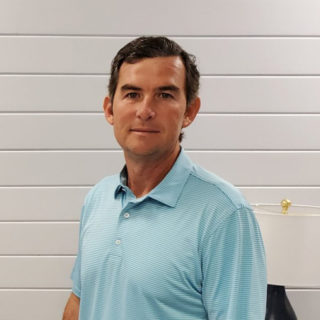Treatable. Beatable. Curable.
Get Screened. Save Your Life.
When was your last screening?

- Early detection results in a 90% survival rate
- Screenings may detect Colorectal Cancer before any symptoms appear
- Colorectal Cancer is one of the only cancers that may be detected early enough to be cured
- The American Cancer Society now recommends that if you are 45 and older, it is important to schedule a colonoscopy screening.
- 60% of colorectal cancer-related deaths could have been prevented with a routine screening
Colorectal Cancer Screening: Colonoscopy
A standard colonoscopy is the most effective colon cancer-screening test and it is the Gold Standard. It is also the only diagnostic and therapeutic test available.
Colonoscopy is a procedure to evaluate the large intestines or colon. A gastroenterologist uses a colonoscope which is a flexible instrument with a small camera on its tip. In a clean colon, the gastroenterologist can visualize the walls of the colon, remove polyps, and obtain biopsies. Colonoscopy may also be performed to evaluate and treat various conditions include bleeding from the colon, unexplained chronic diarrhea, and look for other causes of lower abdominal pain.
Improved Patient Comfort 
Patients will be required to clean their colon by drinking a bowel preparation solution with improved taste. The bowel preparation will naturally result in diarrhea to purge the colon of stool. A clean colon will facilitate a safe and effective colonoscopy. During the procedure, a patient is given sedatives in order to be comfortable.
Lower Your Risk of Colorectal Cancer with Healthy Weight, Activity and Diet
What else can you do? In addition to being screened, maintaining a healthy weight, increased physical activity, and healthy diets are key factors that can lower your risk of colorectal cancer. Check out this article for more information on lowering your risk for Colorectal Cancer.
Call 1-888-680-1431 for your referral today!
Sean's Story
Sean was able to get back to his active lifestyle after his procedure.
I thought I had food poisoning when I was admitted to the emergency room. They diagnosed me
with diverticulitis. When they did the scan of my belly they saw I had a lesion on my colon. The lesion was actually what was making me sick and I had to stay in the hospital. That’s when I was referred to a colorectal specialist, as the best to see for this type of ailment.
The symptoms I was having from the lesion on my colon included nausea, diarrhea, pain and discomfort. This lasted for four to five consecutive days. When the doctor came in to observe me, he immediately knew what it was, that I had a lesion on my colon. He talked with me and explained exactly what needed to be done to fix it, which happened to be surgery. The doctor also explained to me the alternatives to surgery. We came to the conclusion together, that surgery was the best option.
I had surgery on a Thursday, went home from the hospital on Friday, and was back to the work the following Monday. Having never had surgery for anything before, I wasn’t scared, I was actually confident.
If this wasn’t treated in a timely manner, I could go septic in that area. According to the Centers for Disease Control (CDC), sepsis is the body’s extreme response to an infection. Sepsis happens when an infection you already have in your skin, lungs, urinary tract or somewhere else – triggers a chain reaction throughout your body.
It (sepsis) can actually be fatal. That’s why my doctor said that this is not something (my lesion) that’s going to repair itself.
Today, just a short time after my surgery with my doctor, I feel normal again. I ride motocross so I’m looking at getting back into that; I went riding my dirt bike just over a month after the surgery. I ride dirt bikes in motocross recreationally, and thanks to my doctor’s care, I’m really looking forward to getting past this, back to work and back to riding on the motocross trails.


